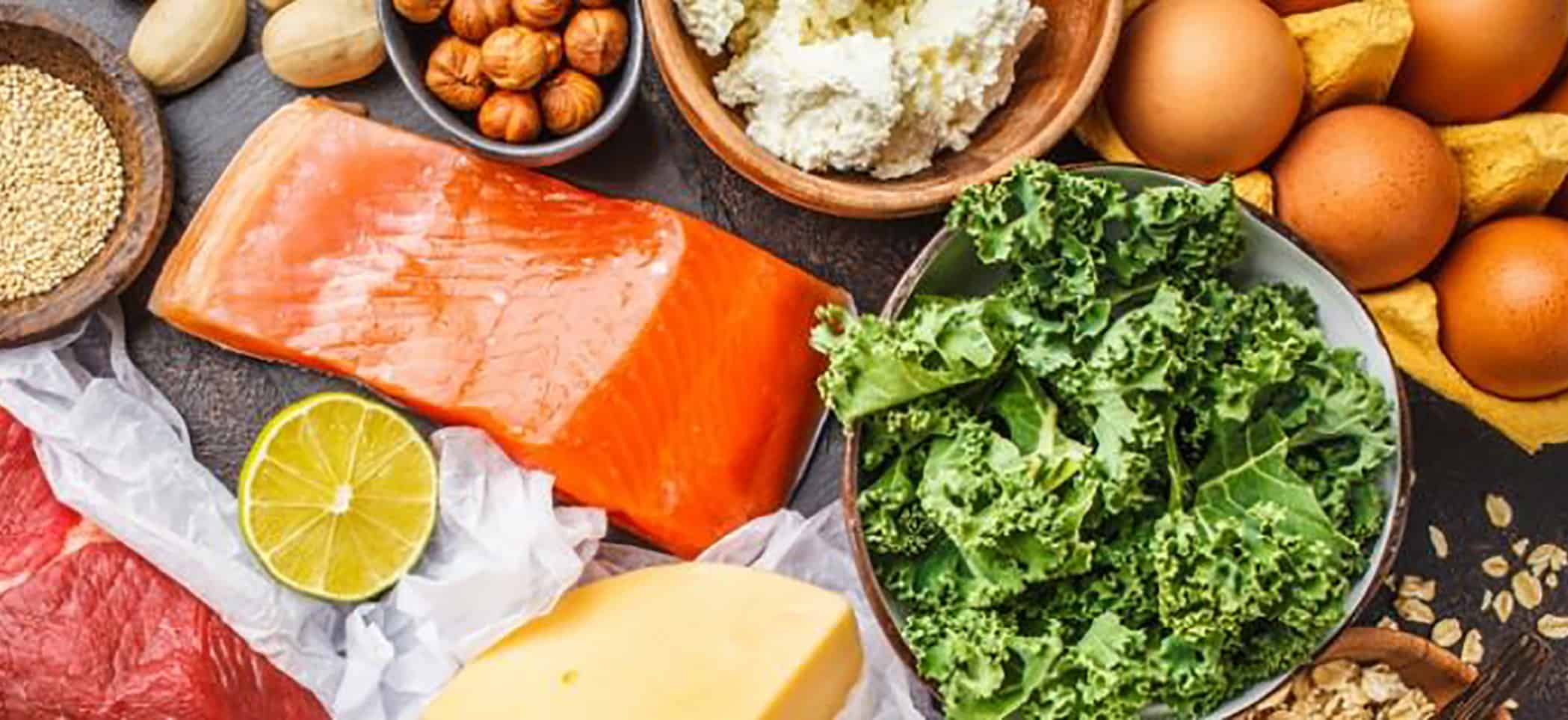Healthy dietary patterns recommended by the Dietary Guidelines for Americans can include a variety of plant-sourced and animal-sourced foods to meet nutrient needs.
Fruits, vegetables, whole grains, dairy foods, protein foods, and oils are key to healthy dietary patterns. Although some animal-sourced foods (such as eggs) are placed in the “Protein Food Group,” these foods are more than just protein and have unique nutrient profiles important for health, as discussed at a recent conference at the University of California, Davis.
Animal-sourced foods provide high quality protein1, meaning these foods have all the essential amino acids the body needs. In the U.S., appropriately planned vegetarian and vegan diets can also provide sufficient protein to maintain health2. However, both plant-sourced foods and animal-sourced foods provide more than protein. Foods from different food groups provide a good or excellent source of various essential nutrients:
- Brussels sprouts: vitamin C, vitamin K, and folate (B9)
- Oranges: fiber, vitamin C, and thiamin (B1)
- Beans: protein, fiber, iron, thiamin, folate, phosphorus, and magnesium
- Eggs: protein, riboflavin (B2), vitamin B12, biotin (B7), pantothenic acid (B5), iodine, selenium, and choline
These examples illustrate that eating a variety of foods can help ensure intake of essential nutrients. However, at this point, there is not a clear answer as to how much total animal-sourced foods we need for optimal health. Each animal-sourced food is different in its composition and there is not consensus of what outcome would indicate adequacy. Growth, anemia, or functional outcomes are possible indicators of nutrient/food adequacy. Some indicators, such as micronutrient inadequacy, are not always immediately obvious.
Vitamin B12, a nutrient important for red blood cell formation, neurological function, and DNA synthesis, is naturally present in animal-sourced foods or may be obtained from fortified foods. Fortified foods are readily available in the U.S., but this may not be the case throughout the world. Choline, a nutrient critical for cell structural integrity, signaling, and neurocognitive development, can be found in small amounts in plant-sourced foods like wheat germ, soybeans, and broccoli. A significantly greater concentration of choline can be found in beef liver, chicken liver, and eggs. Considering approximately 90% of Americans do not consume adequate amounts of choline3, foods rich in this nutrient are a critical part of healthy dietary patterns. Eggs also provide lutein and zeaxanthin (252 mcg/large egg), and importantly, the carotenoids in eggs are readily absorbed and utilized4. New research is exploring the importance of lutein during early years and throughout the lifespan.
While consumption of plant-sourced foods is essential to healthy dietary patterns, plant-sourced foods are not interchangeable with animal-sourced foods. Nutritionally, they are not the same, and research continues to show the value of nutrient-dense animal-sourced foods as part of healthy eating patterns in the U.S. and around the world. Please see our website for additional information about egg nutrition, including information about healthy, sustainable eating patterns and eggs as part of the global solution to sustainable nutrition.
References
- Schaafsma, G., The protein digestibility-corrected amino acid score. J Nutr, 2000. 130(7): p. 1865s-7s.
- U.S. Department of Health and Human Services and U.S. Department of Agriculture, 2015-2020 Dietary Guidelines for Americans. 2015.
- Wallace, T.C. and V.L. Fulgoni, Usual Choline Intakes Are Associated with Egg and Protein Food Consumption in the United States. Nutrients, 2017. 9(8).
- Chung, H.Y., H.M. Rasmussen, and E.J. Johnson, Lutein bioavailability is higher from lutein-enriched eggs than from supplements and spinach in men. J Nutr, 2004. 134(8): p. 1887-93.

